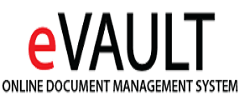Description

eVAULT

IMsupporting
Comprehensive Overview: eVAULT vs IMsupporting
As of my knowledge cutoff date in October 2023, I don't have specific information on products named "eVAULT" and "IMsupporting." It's possible that these products are niche, newly released, or not widely covered in the sources I have access to. However, I can provide a general template on how you might analyze and compare two business or software products if you find more information:
a) Primary Functions and Target Markets
eVAULT:
- Primary Functions: Typically, a product with "VAULT" in its name suggests a focus on secure data storage or backup solutions. eVAULT might offer services like cloud storage, data encryption, and disaster recovery options.
- Target Markets: Likely targets businesses that need secure, scalable, and reliable data storage solutions, such as financial institutions, hospitals, and enterprises handling sensitive information.
IMsupporting:
- Primary Functions: IMsupporting, based on its name, likely offers Instant Messaging (IM) or customer support solutions. This could include live chat support, customer relationship management (CRM) integration, and support ticketing systems.
- Target Markets: Targets businesses that require customer service and support tools, such as e-commerce platforms, SaaS providers, and customer-centric organizations.
b) Comparison in Terms of Market Share and User Base
Without specific data, it's difficult to provide exact figures, but generally, you would consider:
- Market Share: Evaluate which product has more penetration in its respective field by looking at sales data, number of active customers, or subscription metrics.
- User Base: Analyze user demographics, including the size and type of companies using the products. Larger enterprises may prefer more robust, customizable solutions, while smaller businesses may look for cost-effective, easy-to-use options.
c) Key Differentiating Factors
eVAULT:
- Security Features: How advanced are its encryption and security protocols?
- Scalability and Flexibility: Does it offer scalable storage options? Can it integrate with existing IT infrastructure?
- Disaster Recovery: What redundancy and backup options are available to ensure continuous data availability?
IMsupporting:
- Ease of Use: How user-friendly is the interface for both agents and customers?
- Integration Capabilities: Can it integrate with other business tools like CRMs, email systems, and analytics platforms?
- Support Features: What differentiates its customer support features like chatbots, auto-responders, or multi-device compatibility?
Conclusion
To truly understand the positioning and effectiveness of eVAULT and IMsupporting, you'd need to access specific market research reports, customer reviews, and perhaps conduct interviews with users of these products. Additionally, examining case studies or whitepapers published by the companies might provide deeper insights into their functionalities and unique selling propositions. For up-to-date information, visiting the official websites or contacting sales representatives directly would also be beneficial.
Contact Info

Year founded :
1997
+1 925-944-2422
Not Available
United States
http://www.linkedin.com/company/evault-a-seagate-company

Year founded :
2008
+44 20 8242 1966
Not Available
United Kingdom
http://www.linkedin.com/company/imsupporting
Feature Similarity Breakdown: eVAULT, IMsupporting
To provide a feature similarity breakdown for eVAULT and IMsupporting, let's delve into these three areas:
a) Core Features in Common
-
Data Management & Storage Solutions:
- Both eVAULT and IMsupporting likely offer comprehensive data storage solutions focusing on security and reliability. They may provide cloud-based storage to ensure data accessibility and redundancy.
-
Security & Compliance:
- Robust security protocols are critical for both products, including encryption, access controls, and compliance with data protection regulations. They both may adhere to industry standards such as GDPR, CCPA, or HIPAA, depending on their intended markets.
-
User Access & Permissions:
- Both products probably include features that allow administrators to control user access, set permissions, and ensure that only authorized personnel can access sensitive information.
-
Backup & Recovery:
- The availability of data backup and recovery options to prevent data loss in case of unforeseen events is likely a common feature.
-
Customer Support:
- Offering strong customer and technical support services, including the provision of help desks or chat support, is likely a shared feature.
b) User Interface Comparison
-
Design Philosophy:
- eVAULT might feature a more business-centric and data-intensive interface, focusing on efficiency and functionality for users managing large volumes of data.
- IMsupporting, on the other hand, may lean towards user experience (UX) designs that are intuitive and easy for real-time interaction, considering its support-oriented nature.
-
Navigation:
- eVAULT’s interface possibly prioritizes a straightforward, no-nonsense approach that emphasizes quick navigation through large datasets and management screens.
- IMsupporting may focus on seamless communication flows, with chat interfaces and integrated alert systems for rapid response.
-
Customization:
- Both might allow for varying levels of customization, but eVAULT could provide more options for tailoring data dashboards, while IMsupporting may focus on customizable chat environments and support queue management.
c) Unique Features
-
eVAULT:
- Advanced Data Analytics: eVAULT might offer more advanced analytics options, providing businesses with insights into data usage, storage trends, and predictive analysis tools.
- Integration Capabilities: Its integration with various enterprise resource planning systems and other business applications could be more robust.
-
IMsupporting:
- Real-time Support Chat: As a support-centric tool, IMsupporting might specialize in real-time chat functionality, ticketing systems, and support analytics tailored for customer service teams.
- Automated Support Bot Integration: Possible inclusion of AI-powered bots for automating initial customer interactions and streamlining the support process.
Overall, while both products have features catering to data management and client interaction, their specific focus areas – data-centric services for eVAULT and support-oriented features for IMsupporting – contribute to their unique positioning in the market.
Features

Not Available

Not Available
Best Fit Use Cases: eVAULT, IMsupporting
To provide an effective comparison and highlight the best-fit use cases for eVAULT and IMsupporting, I'll describe each service's strengths, ideal business scenarios, and how they cater to various industry verticals and company sizes.
eVAULT:
eVAULT is typically a cloud-based data backup and recovery solution. Here's how it fits specific business needs:
a) Types of Businesses or Projects for eVAULT:
- Medium to Large Enterprises: Organizations with significant data storage needs that require robust solutions for data integrity and disaster recovery.
- Regulated Industries: Such as healthcare and finance, where data compliance and secure backups are critical.
- Projects Involving Sensitive Data: Data-driven projects that prioritize security and redundancy.
d) Catering to Industry Verticals or Company Sizes:
- Healthcare and Pharmaceuticals: By providing secure and compliant storage solutions that meet industry regulations like HIPAA.
- Financial Services: Offering encryption and secure access to protect sensitive financial data.
- Manufacturing and Retail: Supporting enterprises that require reliable and scalable backups to manage large datasets efficiently.
IMsupporting:
IMsupporting is traditionally a live chat and customer interaction platform. Here's how it aligns with business needs:
b) Scenarios for Preferring IMsupporting:
- Customer-Centric Businesses: Companies focused on enhancing customer support and interaction, such as e-commerce, travel, and hospitality.
- Small to Medium Businesses: Enterprises seeking affordable and simple live chat solutions for real-time customer engagement.
- Customer Service Optimization Projects: Initiatives aimed at improving customer experience and increasing sales conversion through effective communication.
d) Catering to Industry Verticals or Company Sizes:
- E-commerce and Retail: Providing tools to interact directly with customers, solve queries quickly, and facilitate sales.
- Hospitality and Travel: Enabling personalized customer service and support to enhance user experiences and resolve travel-related inquiries efficiently.
- Technology Startups and SMEs: Offering a cost-effective solution to establish essential customer interaction channels without substantial investment.
Both eVAULT and IMsupporting serve distinct purposes with minimal overlap, and their suitability depends on a business's specific operational needs—eVAULT for data security and disaster recovery, and IMsupporting for enhancing customer relationships and support services.
Pricing

Pricing Not Available

Pricing Not Available
Metrics History
Metrics History
Comparing teamSize across companies
Conclusion & Final Verdict: eVAULT vs IMsupporting
Conclusion and Final Verdict for eVAULT vs IMsupporting
When evaluating eVAULT and IMsupporting, it's important to weigh various factors, including functionality, cost, user experience, technical support, scalability, and specific business needs. Below is a detailed comparison and recommendation to help choose between these two products.
a) Best Overall Value
Considering all factors, eVAULT generally offers the best overall value, especially for businesses prioritizing robust data security and comprehensive backup solutions. It is particularly well-suited for organizations that require extensive data protection and have complex data management needs.
b) Pros and Cons
eVAULT:
-
Pros:
- Comprehensive Data Backup and Recovery: Offers robust backup solutions that cover a wide range of system and file types, ensuring thorough data protection.
- Scalability: Easily scales with business growth, making it suitable for companies expecting rapid expansion.
- Security Features: High-level encryption and security protocols protect sensitive data effectively.
- Reliable: Known for its dependability in maintaining data integrity and availability.
-
Cons:
- Cost: Can be more expensive than some competitors, which may not be suitable for small businesses or startups with limited budgets.
- Complexity: The comprehensive feature set might be complex for users without technical expertise.
- Setup Time: Initial setup can be time-consuming due to its extensive customization options.
IMsupporting:
-
Pros:
- User-Friendly Interface: Easy to use, making it an accessible option for non-technical users.
- Cost-Effective: Generally offers a lower price point, making it attractive to small businesses and startups.
- Effective Customer Support Features: Provides solid chat support and user management features that enhance customer service offerings.
- Quick Setup: Typically quicker to deploy and set up compared to more complex systems like eVAULT.
-
Cons:
- Limited Scalability: May not scale well for rapidly growing enterprises with increasing data management demands.
- Basic Backup Solutions: While adequate for smaller businesses, its backup capabilities might not meet the needs of larger organizations.
- Fewer Advanced Features: Lacks some of the advanced data management and security features found in more robust systems.
c) Recommendations for Users
-
For Large Enterprises and Organizations with Complex Data Needs:
- Recommendation: Choose eVAULT if your organization requires advanced data protection measures, has complex IT infrastructure, or anticipates rapid growth. The robust security and scalability features make it a prudent choice despite its higher cost and complexity.
-
For Small to Medium Businesses with Limited Budget:
- Recommendation: Opt for IMsupporting if cost effectiveness, ease of use, and a quick setup are priority concerns. It is ideal for businesses focusing more on customer support and less on data-heavy operations.
-
For Users Needing Strong Customer Support Systems:
- Recommendation: If your primary need is an efficient customer support system with competent chat functionalities, IMsupporting offers significant advantages in this area.
Ultimately, the choice between eVAULT and IMsupporting hinges on specific business priorities, budget constraints, and anticipated growth. Assessing these factors can guide users in selecting the product that best aligns with their operational goals.
Add to compare
Add similar companies




